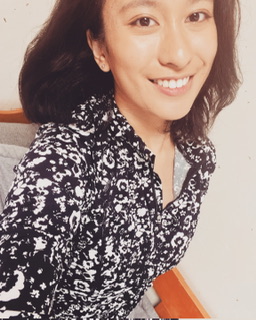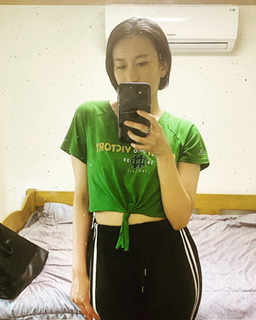저는 진실로 한국 생활에 익숙하지 않습니다… 제 한국어 실력은 아직도 자연스럽지 않은 것 같아서 새로운 사람들을 만나면 조금 불안하지만 너무 재미있습니다. 계속 연습해 볼 거라면 더 좋아지면 좋겠습니다! (I am really still adjusting to life in Korea… My Korean language skills still seem unnatural, so when I meet new people, I get a bit nervous, but it is extremely fun. Hopefully, I will get better if I keep practicing!)
I will be completely honest: though I have absolutely been having the time of my life in Seoul so far, it has not always been smooth sailing, especially with my limited Korean language abilities. Though I have been studying Korean for several years now, I admittedly have experienced some levels of frustration with how slow my progress has been in increasing language proficiency, and that feeling is only enhanced by physically being here, in South Korea. I think one source of this tension is related to the fact that, for as long as I can remember, I have taken so much pride in my ability to learn languages quickly, as it has been a talent and passion of mine since I was very little, and so, I tend to find that I am somewhat disappointed in myself, and the experience is quite humbling. However, in addition to failing to meet my own, impossibly high expectations for myself, there have been other small areas of discomfort that I can only describe as short but sudden re-realizations that I am, in fact, a foreigner with a unique background that makes me stand out from everyone around me. As an Asian-American, I am used to being considered a part of the minority group in the United States, and, in some senses, I think I have grown in my confidence regarding that aspect of my identity, but it seems that the experiences of “being the minority” can vary greatly from country-to-country, and being a foreigner in Korea brings its own set of challenges, including several “critical incidents” where cultural differences seem to really rapidly emerge from the background and become more prominent throughout simple interactions. Though I cannot really narrow every one of these moments down to one, big “critical incident” so far during my journey in Seoul, I do think I can give this set of scenarios a general metaphor of “trying on various new lenses for my cultural glasses,” as I feel that the insight that I have gained from these little interactions have helped me to start seeing the world a little bit differently than before.

I had been in Korea before this internship for a semester abroad, and so, I was already somewhat aware of the fact that I would be on the receiving end of a lot of curious looks when I got here. After a few months of the staring, I got used to it, feeling much less self-conscious about it with each passing day, and I would eventually come to learn, through several of my classes and interesting social media posts from expats, that these glances were typically harmless. Generally, the reasoning behind these looks would be that I simply stand out as a new face in this country since Koreans have historically considered themselves a homogeneous community until only recently. Since I was already aware of it, this part of the foreigner experience in Korea did not bother me as much this time. To put it in the terms of my metaphor, I had already adjusted that aspect of the prescription for lenses of my “cultural glasses” before I got here. However, as an exchange student, most of my classes (except, of course, the Korean language class) were in English, and all of them were with other foreign students, so I was rather disappointed by my lack of opportunities to interact with and converse with native Koreans as a learner of the language. For this reason, one of the things I was most excited to start doing during my internship was to start utilizing my speaking and listening skills more directly in the Korean community. However, one of the first things any foreigner will notice when they arrive in Korea is that, if a Korean native notices that a person is a foreigner, and they are comfortable enough with English, they will immediately switch from Korean to English, regardless of the language the foreigner begins the conversation with. I immediately noticed this the first time I visited a store here: I approached the cashier and began the transaction in Korean, but the moment she could tell I was a foreigner, she switched to English. Although I attempted to continue the conversation in Korean, it just felt awkward after awhile, so I reverted back to English. Similar instances continued to occur at various other stores and restaurants, but the place where this has been most noticeable has been the research lab, where my internship is taking place.

I would like to begin with the fact that everyone at the Vision, Cognition, and Consciousness (VCC) Lab in Yonsei University has been so accommodating and kind, and it is truly an honor to meet and work with them. Each and every one of the lab members has my full gratitude and appreciation, since, from what I have gathered, I am one of the first interns at this lab who has been less-than-fluent when it comes to Korean. Overall, everyone here has always been very helpful and open to questions, and they even invite me to participate in their daily lunches, seminars, and meetings as a lab group, which has really helped to make me feel much more welcome. However, when it comes to the small handful of “critical incidents” where I would struggle to practice the Korean language, the lab is where such situations are most evident. Obviously, since this is a lab at a Korean university for Korean graduate and PhD students, everyone communicates mainly in Korean during lab meetings, even when we are discussing papers that are read and written in English. At my first two lab meetings, I literally could not get a word in, not because people were talking over me but, rather, because I simply could not find the right words to communicate what I wanted to say, and it was undeniably frustrating. My silence at the lab meetings has been one of the most disconcerting experiences for me so far, since, as a Notre Dame student, I am so used to actively participating in group discussions, and this feels like such a familiar setting to do so, but, because of the language barrier, I am also well-aware that I am not quite able to get my points across easily. Of course, because of this, I understand that, for the sake of efficient communication, it is easier to use English with me, but at the same time, it simply does not make me feel better when the lab members switch to English just to communicate with me, because I genuinely want to learn the Korean language.
Yonsei University is one of the top three universities in the Korea, so most, if not all, students here are nearly fluent in English. Almost every single time I have attempted to hold a conversation with members of the lab, I have either been told directly that it is okay if I have to respond in English, or I have just had to accept the fact that the discussion had indirectly transitioned back to English over time. This is off-putting as a language-learner, especially since, from my personal, cultural background, it almost feels insulting due to the American value of self-reliance: in some of these scenarios, switching to English immediately can make it seem as though my conversation partner is implying that my Korean language skills are not good enough, and it takes a lot of cultural reframing to think otherwise. However, from my. direct observations of what life is like in Korean society, I think I have a better understanding as to why this is the case in most of my interactions. Koreans themselves would be some of the first people to tell others that Korea is a collectivist society. I even see this statement directly in the texts of various psychological research papers that were written mainly by teams of Korean researchers. Therefore, in contrast to my American value of doing everything on my own, so as not to be a hindrance and in order to empower myself, Koreans seem to look at things from a different perspective. It is a big value in Korean culture to ensure the progress of the community as a whole, meaning that, if they notice another person is having difficulty with something, most of the time, for the sake of the group, they will do their best to immediately alleviate that issue. When Koreans see me struggling with their language, it therefore makes sense that they would switch to English if they are able to do so and better accommodate me, even if that requires speaking in a language that they themselves are less familiar with. Through the lens of Korean culture, which relies heavily on building up the whole population, switching from Korean to English for a foreigner is not meant to say that the foreigner’s Korean skills are inadequate, but, rather, it is intended to be a form of support when there is a perceived complication in communication within the group for the sake of promoting forward progression.
I think looking at these uncomfortable instances through this other perspective both helps me to make my outlook more positive while looking back on my experiences so far in Korea and gives me a better understanding of the Korean values that are derived from the central value of collectivism. I also think there is an important lesson to learn when coming from a more individualist America to a more collectivist Korea: it is not a sign of weakness to need help sometimes, because it is impossible to do everything on your own, and there can be many benefits to working together with others for the overall good of the whole group. I am sure that, despite the commonly-known American value of independence, the United States would still agree with this sentiment to some extent, considering the fact that the nation originally came into being through the joint effort of thirteen colonies working together as a whole. In this sense, putting on new “cultural glasses” has also made me realize that, though they still distinguish cultures from each other and make them uniquely beautiful, some of the cultural differences many people may perceive do not necessarily lead to total disagreement.
Just yesterday, since this is a lab for visual perception, cognition, and consciousness, I was talking with my lab director about the interesting, psychological and social concepts behind viewing others through the lens of the culture an individual grew up in. The more I talked with him, the more I realized that, even if Korea is more collectivist and America is more individualist, both countries, at their core, are attempting to do what is best for their people, even if their approaches and perspectives may vary slightly in specifics. It is one of my lab director’s broader research goals to demonstrate, through psychological research, that humans all process visual information in the same way, regardless of their cultural background, and he wishes to somehow use that data to start changing how people perceive those from cultures that are different from their own. In other words, he is hoping to tackle one of the greatest universal issues of stereotyping and excluding out-groups, and I believe that this unifying research goal has a profound connection with my own, intercultural identity goals that are working to consolidate the many, confusing cultural identities within me. I know that I still have a long way to go when it comes to figuring myself out fully, especially in the context of a novel environment, but it is rather comforting to know that, while we are not all the same, we, as human beings, all seem to share the same goals and desires for a better future.
I have only been in Seoul for around two weeks, but I feel like the country has already taught me so much, and I am genuinely falling deeper in love with it the more time I spend here. Additionally, while some of my cultural differences have still led to some slightly uncomfortable “critical incidents” surrounding my language usage, I have come to a better understanding of why such cases may occur here. I have been slowly learning how to change my perspective on cultural differences. In doing so, I have also somewhat learned how to reconcile the fact that I am simply different as a foreigner in Korea with the fact that I am still being welcomed by and making tons of happy memories with the Korean community. As I am considering the metaphor of “cultural glasses,” I cannot help but think that my experiences in Korea as a foreigner are slowly tinting my cultural lenses in uniquely colorful ways, and that may not necessarily be a bad thing. I am excited to see how my perspectives will continue to change as I continue along on my journey in Seoul, South Korea!
Sincerely,
Sara Anne

P.S. As you all can see, I am not just trying on new lenses for my “cultural glasses,” but I am putting myself out there and trying other types of new styles!!!
